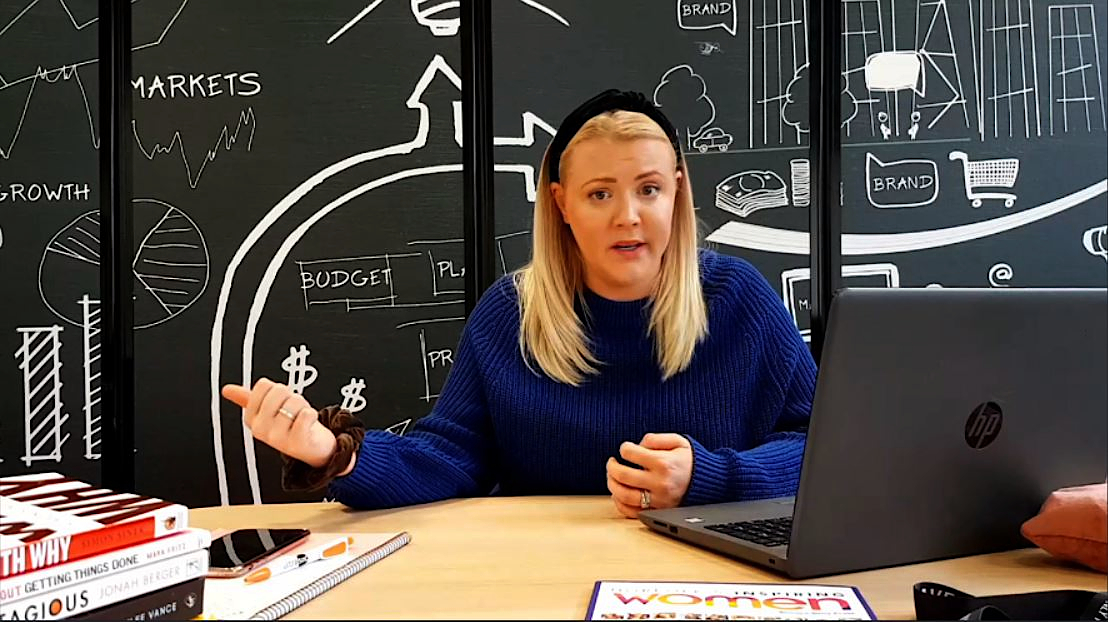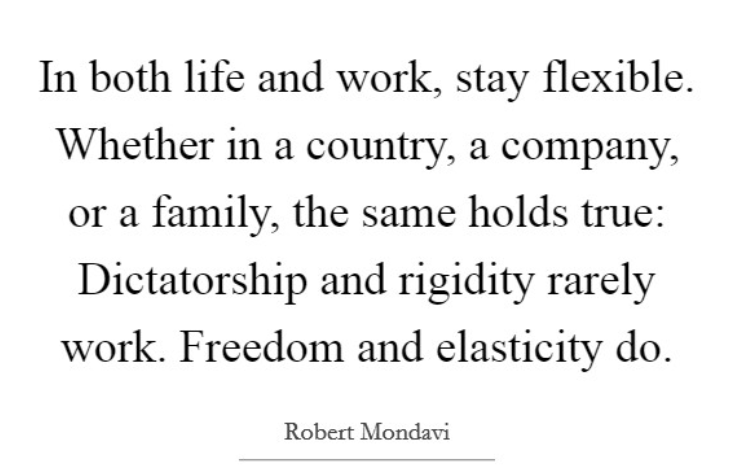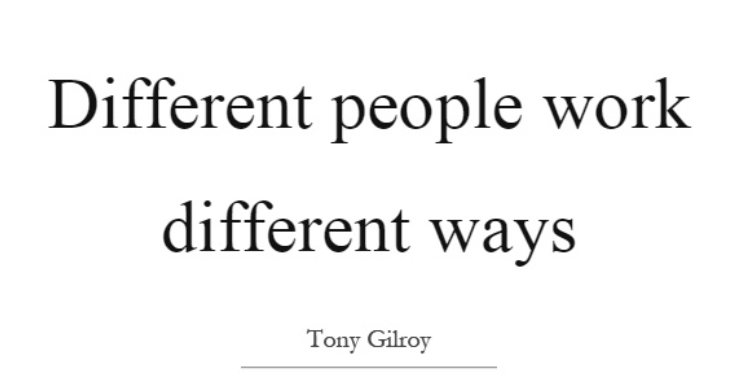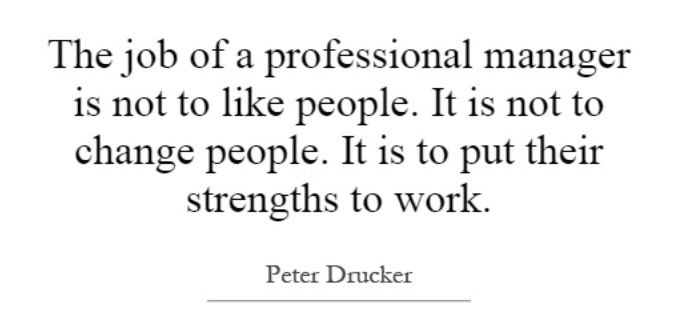
Hi guys and welcome to Stronger Thyngs?
This content is here to give you an insight? into how we are building our business stronger every day and hopefully enable you to do the same.
Last week we were looking at how to get the most out of your team and how to maximise productivity. One of the things that we alluded to was around flexible working and this I feel is a massive part of creating a flexible and successful business.
So if you’re wondering how we here at Thyngs incorporate flexible working into everything that we do and just how much that improves our business and how we believe it can improve yours, read on…
Or, if you prefer video content, hop on over to our YouTube channel to watch this content here?
Why does a flexible team create a stronger team?
This is because each person in your team is an individual. Everyone has their best way of working that is individual to them.
The days of working hours being set strict from 9:00 till 5:00 with a set lunch break and if you're not at your desk or you don't have your headset on, you're not considered to be working, are gone?
The world is much more complex than that? So are our businesses and so are the roles within our businesses.
Whether you're a night owl who does their best thinking in the middle of the night or if you're not up by 6:00 A.M. you're not going to be able to function for the day, everyone has their own individual requirements.
In our company, we have a really diverse range of people.
Take our development team. Now, I know a couple of the guys on our team would happily work from 5:00 P.M. straight through the night and we allow them to do that if that's how they feel they're most effective? because they also know that they're not in fear of being reprimanded the next day for not being in on time or for taking a few hours off.

What we have to fulfil are goals.
We've got set projects to deliver and set work to do? How we do this and how everyone works is completely different. As long as we together are working at driving forward and becoming a stronger team and a stronger business. When or how that work happens is pretty irrelevant?
Every business out there is results driven and the path on how you get to that result doesn't have to be the same every time for every individual in your organization.
Flexible working opens us up to have a more diverse team.
We are able to look at people who don't fit into that nine-to-five box and ensure that their strengths and their capabilities are helping us to drive forward.
A working parent is someone who already has a skill set that enables their house to run, their kids to get to school on time, their clothes to be washed, their packed lunches to be made.
They are very capable of dealing with high pressure situations and being able to remain calm?
This in itself is a fantastic asset to any business, but businesses miss out on these people, these parents, because they can't see past the fact that they're not going to be until just after 9:00 after they've dropped the kids off at school and they also need to finish at 3:00?

Diverse teams, diverse thinking.
Of course, there are still plenty of business models who require staffing at set times, who require people to clock in and clock out. These things are always going to be there, but it's learning how businesses can change and become flexible that will really drive them forwards?
For me this is hugely important. I do have two young children. I went back to work full time when my son was six months old and I have had to build my career alongside building myself as a parent.
Now this month is epilepsy Awareness Month, and I think it's crucial to realise that no matter whether you have children, relatives, anyone in your life anyone can be affected by these things.
My son had epilepsy. Luckily, he's grown out of it now but throughout all my early career I was having to take time off to go to the hospital. Sometimes, I'd spend up to two weeks in the hospital at a time.
I’ve worked for employers who understood this and employers who didn’t.
I would have to sit at my desk and watch people call in sick on a Monday because they're hungover and get paid for that time, whereas when I'm sat next to my son in a hospital bed that's parental leave so it's not actually paid.
All this regardless of the fact that when my son was asleep, I’d have my laptop out and I'd be making sure I was keeping on top of everything.
Nothing slipped just because my life happened.
But being able to work for a company that understands that and allows you the space that you need to do what you need to do is so important.
We have to understand that there are huge differences within roles.
Understanding the dichotomy between the roles in our business is so important. As a small company, we have three creatives? we have three developers? and we have a support team?
All of these people work in the same space towards the same goal, but they all work completely differently.
Just because our designer isn't at his desk tapping away doesn't mean that he's not creating, that he's not being productive.
He's got a process that gets him to the end goal, and we respect that.
The same for me, my role in this company is to fix things, to solve problems and to help it grow. Now I may sit there for 10 minutes trying to solve a problem on my own and realise that the only way I can do this is to grab one of my team and hit up a whiteboard.
"Time away from my desk and away from the task in hand enables me to ensure that I am thinking about a problem in lots of different ways."
- It helps me get to the results
- It helps me get to the answer
Now, clearly within a business you do need to be able to recognise when people are working flexibly or in their own way and when they're not working.
And the key to that again is understanding your people.
I know that I keep going over this topic time and again, and if it's something you're interested in then take a look over our previous blog or video content, it really is what steers businesses to success.
It's what enables you to create a working environment where flexible working is acceptable.
Just because I love to stand around with a whiteboard, someone else in the exact same role as me will have their own process.
I completely respect that, and you should too.
"Getting to know the people we have in our company is what will drive us to success. Without that, we're not playing to our team strengths or to our business’s strengths, we're setting ourselves up for failure."
Understanding Your People.
Incorporating a flexible working policy into your company is not going to work unless you are taking all the steps before to understand your people.
Saying that as a company you accept flexible working isn’t just "You can do the school run, you can go to your hospital appointment.”
It's completely understanding;
- how people process?
- how they work?
- how they develop?
- what works best for them?
It's having a full understanding of the blue sky thinking, the actual reality, and how the two marry up, then working out how this works best for your business.
For us, I am completely happy for my dev team to work nights if that's when they're awake. That's up to them.

"I know from the results that I get that when they're in their own space in their own time the results are so much better."
We have people in roles where although our core business hours are 9:00 till 6:00, may come in at 7:00 in the morning because they have their hours and their content they need to create, they come in they get it done?
They know when they work best and then they have the rest of their time not dictated by work that they can then go and pursue their personal ventures. We fully support this.
Our staff are people.
They're people with their own dreams, with their own goals, with their own values and us as a business have to respect that. And the more that we do, and we truly respect it not just paying lip-service, the better our business becomes. The stronger our business becomes?
If you can get your head round that, you're going to see these same results.
Now it might seem super scary as a business to move into this flexible workplace? I understand that, and there are plenty of professionals out there that can help you and guide you. It's not necessarily something you could jump straight into, it's something that you process in time.
But if you do take that leap and you do make these changes then **you're going to be moving ** forward with the rest of the world and not stuck back in how businesses used to work.
People aren't the same and we as businesses and as companies have to acknowledge them because the people are our business and if we're not working for them, they're not going to want to work for us?
If you found this at all helpful, please do hit like, share your thoughts in the comments, or check out our other content on the Thyngs blog or YouTube channel.
I’m Laura Fox-Newby, and we’re Thyngs


